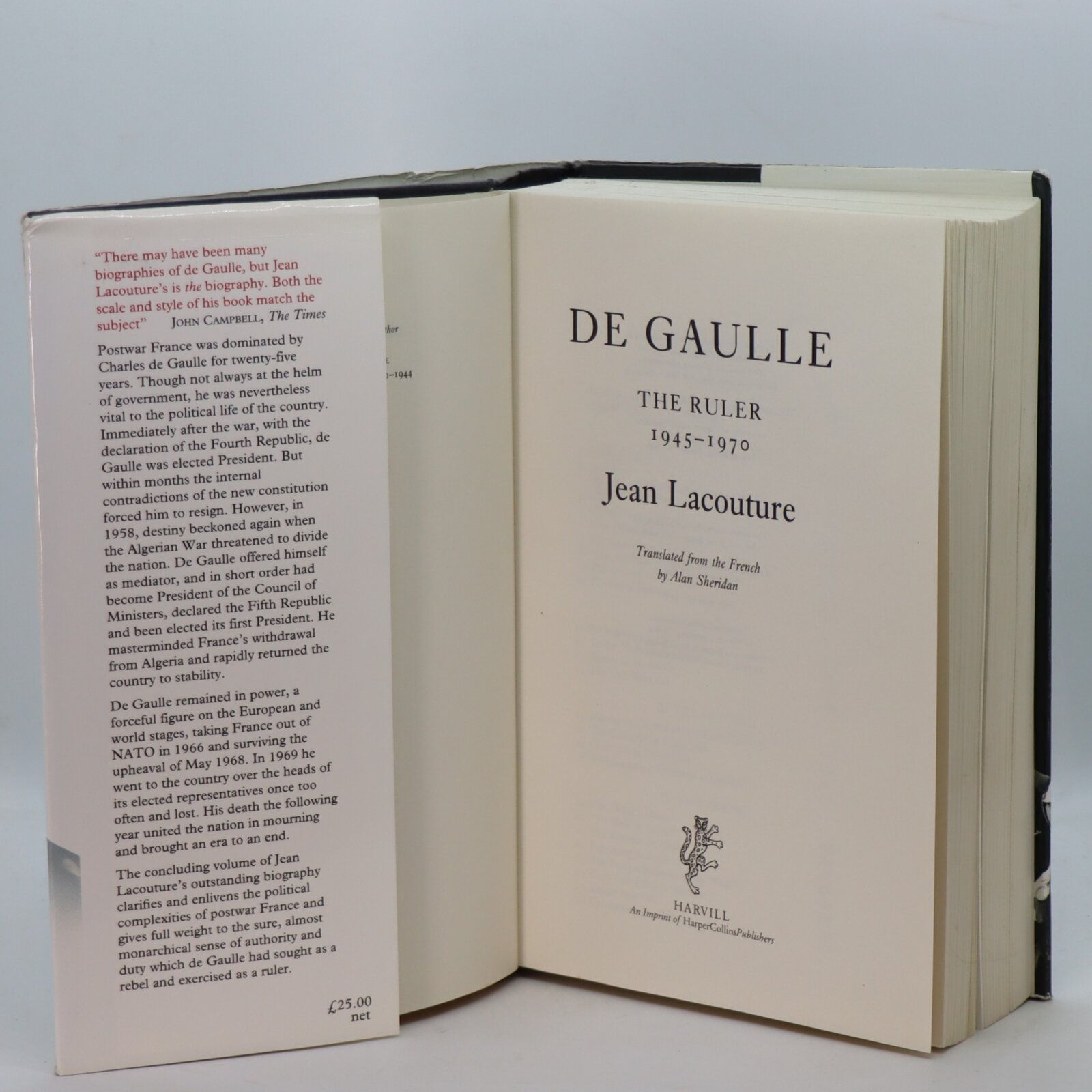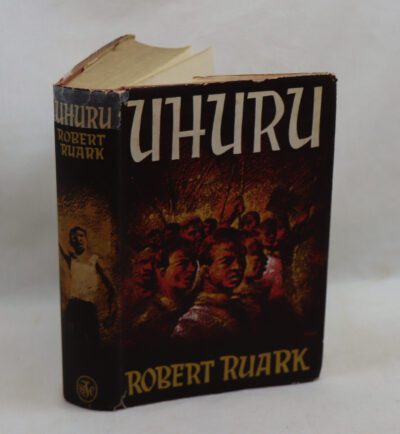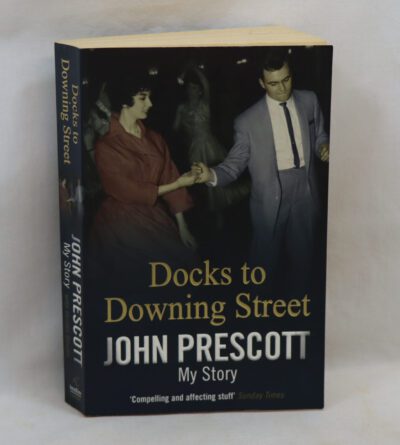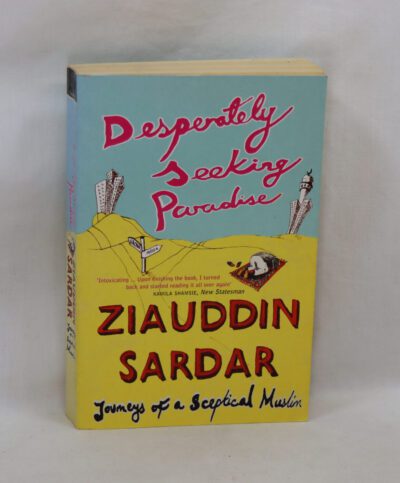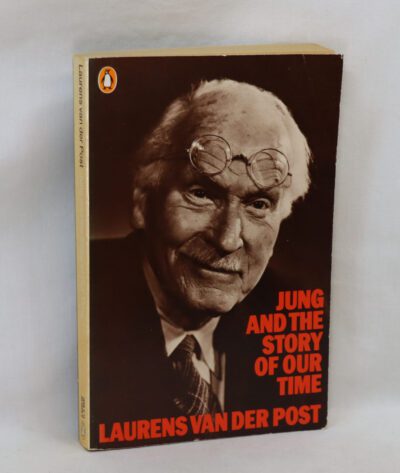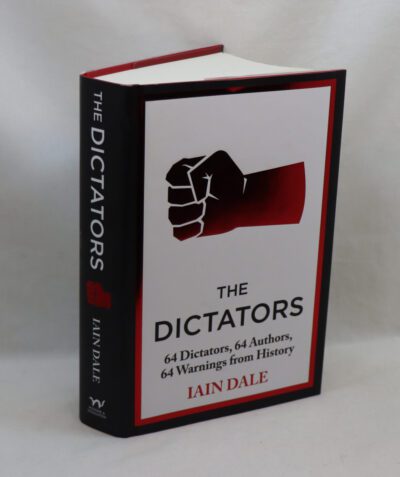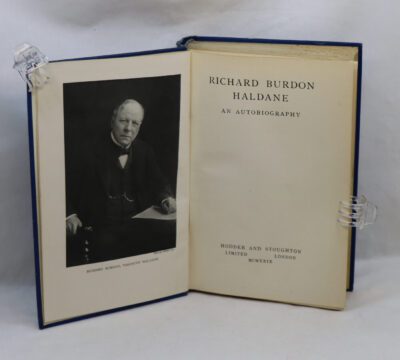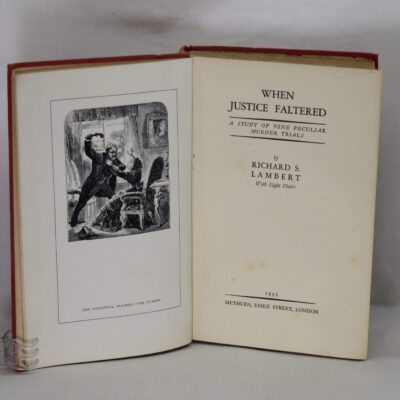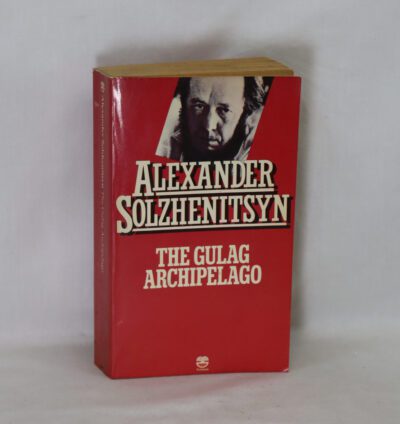De Gaulle. The Ruler 1945-1970.
By Jean Lacouture
ISBN: 9780002711531
Printed: 1991
Publisher: Harvill. London
Edition: First edition
| Dimensions | 17 × 25 × 6 cm |
|---|---|
| Language |
Language: English
Size (cminches): 17 x 25 x 6
Condition: Fine (See explanation of ratings)
Your items
Item information
Description
In the original dustsheet. Black cloth binding with gilt title on the spine.
F.B.A. provides an in-depth photographic presentation of this item to stimulate your feel and touch. More traditional book descriptions are immediately available.
A well kept readable edition
The second volume of the biography of de Gaulle, who was declared the first President of the Fifth Republic and who helped to stabilize the country during the Algerian War.
This is volume two of the English language version of Lacouture’s DeGaulle series. Unbiased biographies of DeGaulle are relatively hard to find, and I like LaCouture’s because of it’s depth and impartiality. The first volume (Rebel) covered DeGaulle’s life from Childhood through World War I as an officer through his leadership of the Free French in WWII. His involvement with and leadership of the French Resistance is covered in a fair amount of detail, and his successful strategy of peeling off the French colonies from the Vichy government was unknown to me before reading this book. Roosevelt’s inexplicable opposition to DeGaulle when virtually all of France had embraced him and rejected Petain is detailed here. Roosevelt’s attitude goes a long way toward explaining DeGaulle’s post-war determination that France had to be independent of the US, and had to have it’s own nuclear force. DeGaulle was also one of the first western leaders to realize colonialism was dead, and to act on that knowledge. His personal bravery and willingness to dive into crowds as President made me realize what timid people we have now as leaders in the Western world. He is the kind of man we are sadly lacking today; a veteran of war (he was twice wounded in WWI, and was a POW), who recognized the folly of war and was focused instead on doing the things that would make France great again, not engaging in military adventures. He was at bottom a man who valued human life. It is little known that DeGaulle had a Down-syndrome daughter, and that experience humanized him and made him more empathetic than he would probably have been otherwise. There is speculation that part of his visceral rejection of fascism had to do with his knowledge of how the Nazi’s would have treated someone like his daughter, but also, long before Hitler came to power DeGaulle had Jewish friends, and indeed his mentor in the Army, Colonel Mayer, was Jewish. This volume focuses on his role as president, and is very informative about his handling of Algeria; he was in a hurry to end the war because it preoccupied the government and prevented France from moving on to more important issues, and, though many criticized his haste in resolving the crisis, his fast approach is probably preferable to the decade-long American efforts in Viet-Nam, Iraq, or Afghanistan. His relationship with Eisenhower was excellent, as was his early relationship with Kennedy, and the book deals fairly with the later degradation of Franco-American relations. A couple of complaints about the book: first, Lacouture, who was writing for a French audience primarily, assumes the reader is familiar with many events in French history and with French political parties, which most Americans are not; secondly, I wish the book had at some point laid out DeGaulle’s main goals and accomplishments as President in a sort of summary. One can deduce these from the book, but it could have been made plainer. Also, certain things that DeGaulle set in motion, like the Ecole Nationale de l’Adminstration that have had a great effect on modern France are hardly dealt with at all. DeGaulle’s establishment of nuclear power as France’s prime source of electricity (about 80% of the total) was a remarkable accomplishment and does not receive adequate treatment. The book deals more with political events than it does with many of the man’s practical accomplishments, but overall it is very well done, and by the end the reader knows Charles DeGaulle very well indeed, and he was a great, great man, the kind we in the West seem not to produce very often any more.
Note: volume 1 is “A thorough, splendid account of the great political dramatist, the very conscious creator of his own legend. . . . Balanced, indispensable.” ―Fritz Stern, Foreign Affairs The second volume of Jean Lacouture’s acclaimed biography of Charles de Gaulle opens with the creation of the Fourth Republic in the aftermath of World War II and with the election of de Gaulle―the voice of Free France, the savior of the nation in war―as president of France. But the internal contradictions of the new constitution soon forced de Gaulle to resign, leaving France to a succession of short-lived and generally ineffective coalition governments. In 1958, with the outbreak of the bitter colonial war in Algeria, destiny beckoned again. De Gaulle offered himself as a mediator and in short order became president of the Council of Ministers, then president of the Firth Republic.
Condition notes
Want to know more about this item?
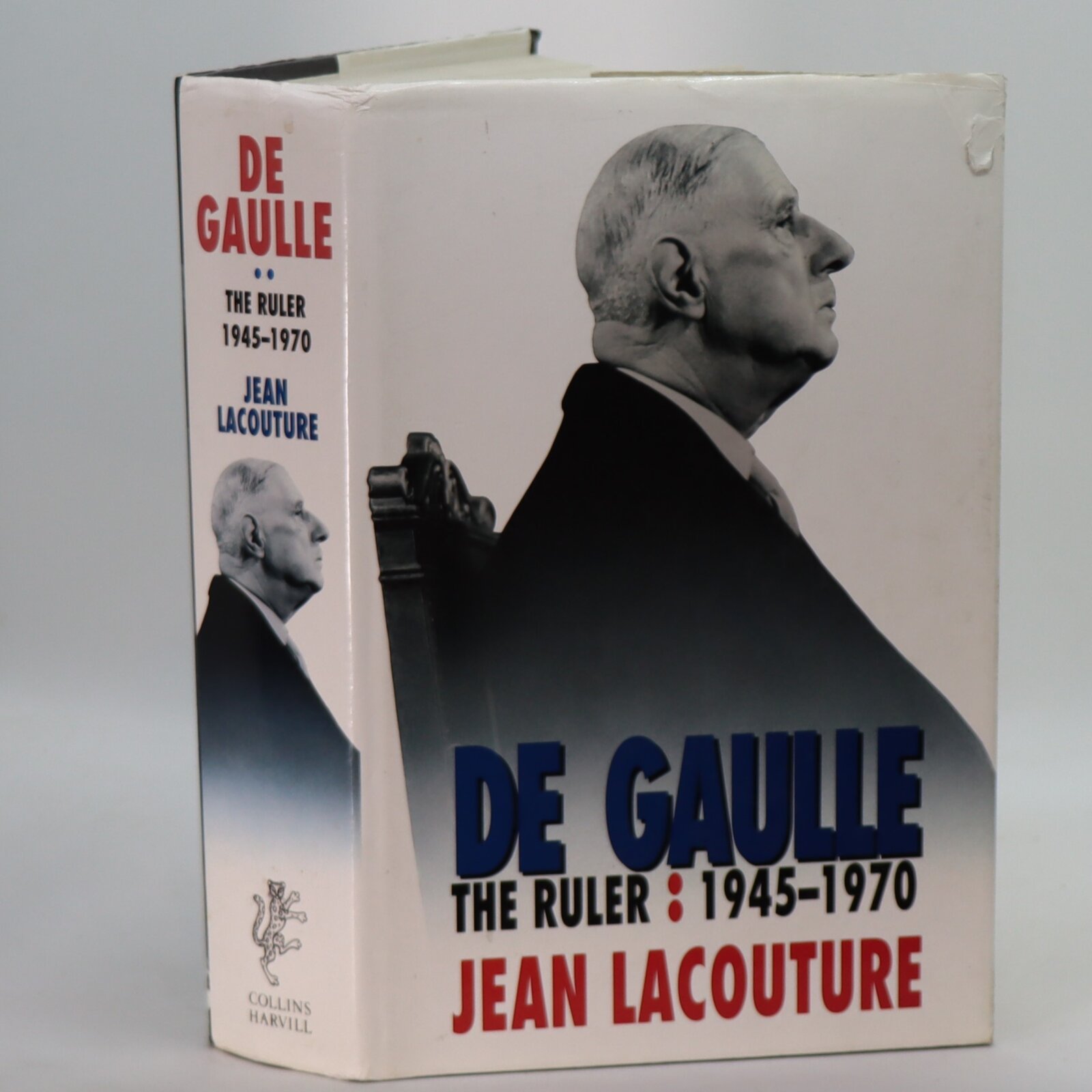
Share this Page with a friend

